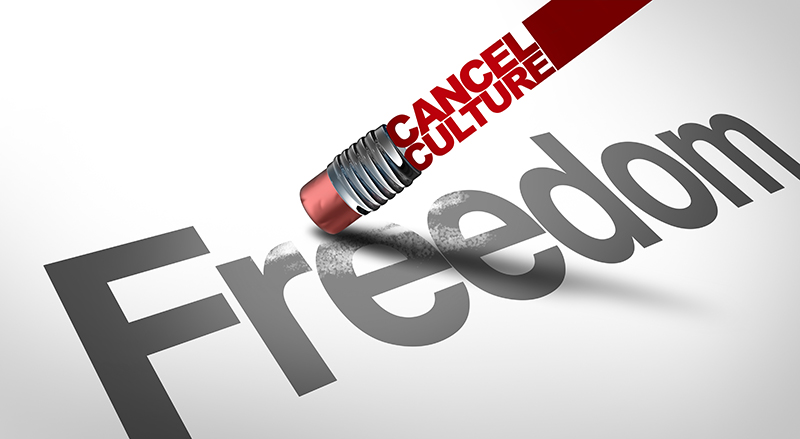
Conversion therapy ban would exacerbate cancel culture
Cancel culture has become prevalent across society.
The Cambridge Dictionary defines cancel culture as “a way of behaving in a society or group, especially on social media, in which it is common to completely reject and stop supporting someone because they have said or done something that offends you”.
In short, ‘you’re not welcome here – and shouldn’t be welcome anywhere – if you don’t believe what we believe’.
Those who dispute fashionable views on sex and gender tend to be in the firing line.
Recently a former Guardian journalist, Suzanne Moore, spoke of her experience of being ‘cancelled’.
What did she believe that was so controversial it cost her her job?
In her own words: “that biology is real, that single-sex spaces for women should be maintained, that children should not be medicalised via hormones and surgery, and that trans people should be treated with respect and dignity”.
These are far from radical beliefs. Yet, this has been the direction of travel across much of society and social media. It is even the explicit aim of some to legislate against those with whom they disagree.
If LGBT activists get their way and a broad conversion therapy ban is passed, many will be ostracised and silenced for holding unpopular views, it won’t just be journalists and commentators.
A broad conversion therapy ban would leverage the law to ‘cancel’ pastors and parents from expressing biblical beliefs on sexual ethics and gender.
LGBT activists want to make praying a crime. Leading activist Jayne Ozanne says she wants even ‘gentle non-coercive prayer’ to be covered by a ban. If a Christian struggling with same-sex attraction asks a pastor to pray with them to help them stay faithful to the teachings of the Bible, that pastor would be breaking the law under a broad conversion therapy ban.
The far-reaching legislation would also criminalise ordinary pastoral conversations and preaching if it holds to orthodox Christian teaching on relationships and identity.
Top human rights lawyer Aidan O’Neill KC, examining proposals put forward to the Scottish Government, concluded: “Prayers and sermons would be criminalised if their content did not conform to the new State requirements only to affirm, validate and support the identity and lived experience expressed and stated by an individual.”
A broad conversion therapy ban could not only legislate to ‘cancel’ Bible believing churches. It could also make it illegal for loving parents to question their son or daughter’s decision to change gender.
A loving parent could be arrested and charged for telling their son that he is a boy and questioning his decision to transition to become a girl.
The conversion therapy ban in the Australian state of Victoria is held up by LGBT activists in the UK as the gold standard. Official guidance explains that “not affirming someone’s gender identity” and “a parent refusing to support” their child’s request for puberty blockers would constitute illegal behaviour under the Victoria ban, which has been in force since last February.
Analysing the Scottish proposals, which are heavily modelled on the Victoria law, O’Neill KC also warned: “Indeed these proposals would also criminalise parents who lovingly and in good faith and in accordance with their own best judgment and conscience seek to caution their children in relation to any stated intention to embark on “gender affirmatory”/“gender transition” treatment.”
A broad conversion therapy ban would only serve to pour legal fuel on the cancel culture fire.
Journalists and commentators may risk being silenced and sidelined for expressing unpopular views, but if conversion therapy is outlawed, pastors and parents risk being criminalised for simply discussing mainstream biblical views on sexual ethics and gender.
These are dangerous proposals that threaten freedom of speech, freedom of religion and freedom of families.
Plans to outlaw conversion therapy – what to expect in 2026?
2025-12-23 09:47:27Aus Christians unite against extreme conversion therapy law
2025-12-10 12:15:40
